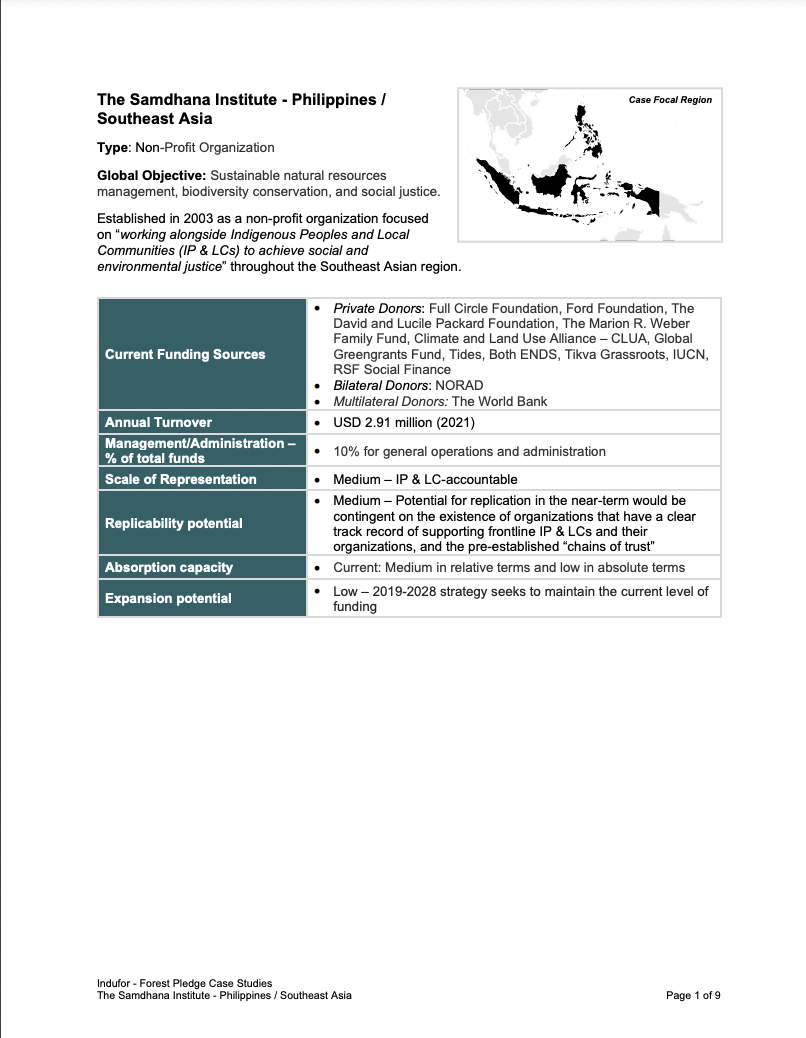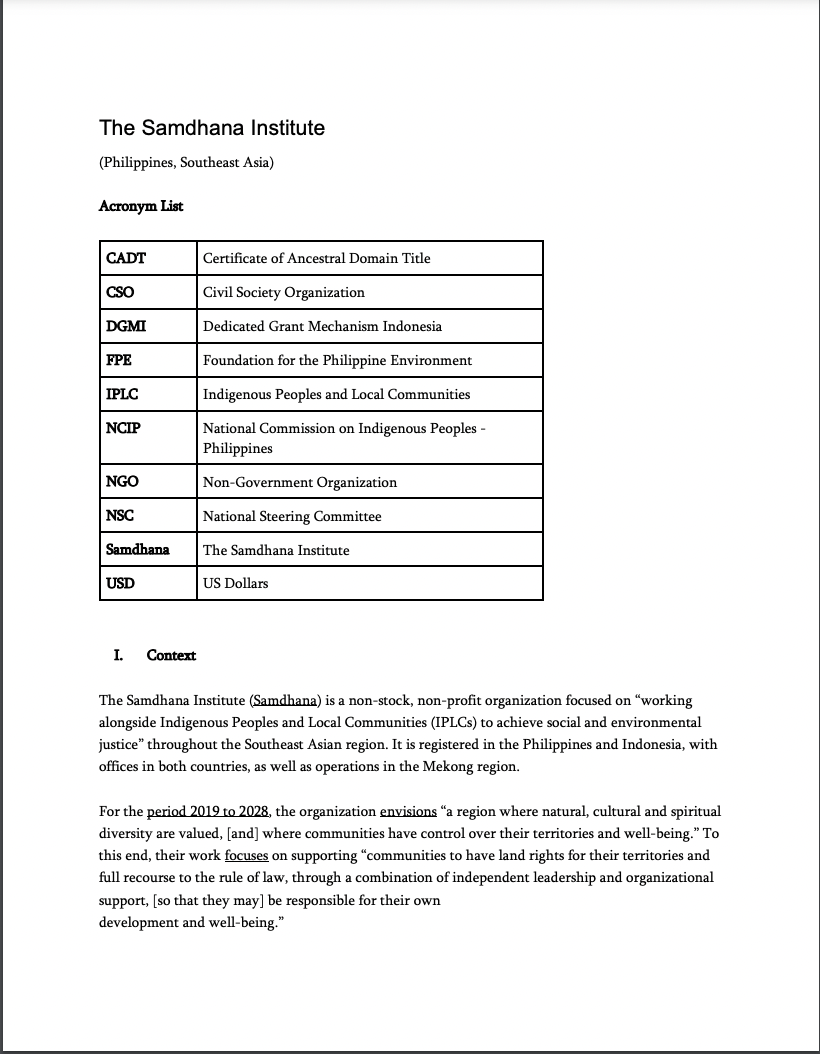The joint East Asia Pacific (EAP) and South Asia (SAR) Regional Workshop explored the complexities of effective land and property valuation amid rapid urbanization, under the overarching theme “Breaking Barriers: Access to Land and Poverty Reduction and Climate Resilience.” The session…
The session examined the intersection between women’s land rights and climate change, focusing on how secure land tenure for women contributes to a more sustainable and resilient planet. A framing presentation provided by Ruth Meinzen-Dick from IFPRI set the stage by highlighting the latest…
The joint East Asia Pacific (EAP) and South Asia (SAR) Regional Workshop highlighted the importance of strengthening land tenure to achieve a sustainable and inclusive future. The event was part of the broader theme “Breaking Barriers: Access to Land and Poverty Reduction and Climate Resilience…
This case study details the work of the Samshana Institute.
This case study details the work of the Samdhana Institute.
In rural areas where malnutrition is higher and households poorer, growing diverse fruit trees-especially indigenous fruits-can provide multiple benefits. These fruit trees can be a valuable source of secondary income in rural areas such as Guinayangan, where coconut cultivation is the primary…
Nutrition-related problems are a widespread challenge in the Philippines. Many factors contribute to these problems - the availability and affordability of vegetables, for example, which are jeopardized by challenges such as seasonality and inconsistent yields due to the impacts of climate…
Extreme climate events such as flood, drought, and high temperature are expected to increase in frequency and intensity with climate change. Mapping and characterization of food production areas at risk can help in better targeting innovations and in enhancing the resilience of affected…
Cognizant of the centrality of food systems
in a rapidly urbanizing world amidst
environmental and health risks, the
Resilient Cities Initiative will strengthen
capacities for research and innovation in
the management of urban food systems in
Africa, Asia, and…
The study conducted in Cavite province sheds light on the factors that influence the availability and accessibility of indigenous vegetables in urban and peri-urban markets. The study specifically looked at the perspectives of both market vendors and consumers in the two primary urban areas of…
Despite their potential to diversify diets and improve nutrition, little is known about the consumption and utilization of indigenous fruits (IFs) in the Philippines. This desk review compiles and analyses different initiatives targeting the conservation and promotion of these lesser-known…
Brown spot, caused by Bipolaris oryzae, is becoming more prevalent and important in the Philippines but risk assessment is limited. Surveys of 2186 farmers' fields were conducted in the major riceâ€growing areas in the country from 2015 to 2018 to analyse the components of production…




